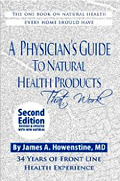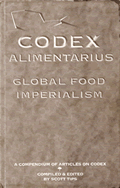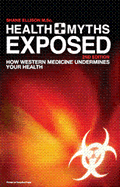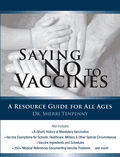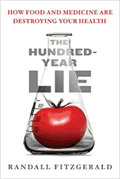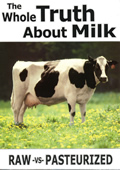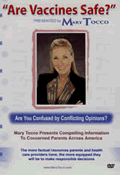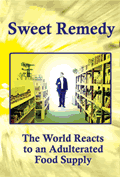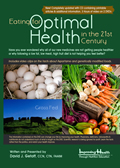ANTIBIOTIC THERAPY CAN INCREASE THE RISK OF BREAST CANCER
By Dr. James
Howenstine, MD.
May 26, 2010
NewsWithViews.com
An important study from the JAMA published on February 18, 2004 revealed that women who have taken antibiotics are at increased risk for developing breast cancer. Ten thousand Dutch women were studied, including 2,266 who had breast cancer. As the number of prescriptions for antibiotics increased the risk of breast cancer steadily climbed. The women who had more than 25 prescriptions for antibiotics filled over a 17-year follow-up exhibited twice the incidence of breast cancer as women who took no antibiotics. The women who had fewer than 25 antibiotic prescriptions had a 50% greater risk than women who took no antibiotics. There did not seem to be any differences related to various types of antibiotics.
Research from Finland in 2000 involving 10,000 women revealed that women below the age of 50 who had taken antibiotics for urinary infections had an increased risk of breast cancer.
Having a healthy gastrointestinal tract is a key component for good health. All antibiotics kill healthy intestinal bacteria that keep our immune systems strong. When these bacteria are killed by antibiotic therapy, they are replaced in the intestines by more dangerous anaerobic bacteria, parasites, fungi, yeast and mycoplasma. We then become more likely to develop generalized infections from this greater population of undesirable organisms. Additionally, the escape from some of these organisms of neurotoxic substances released into the blood may lead to dysfunction of the endocrine glands (hypothyroidism, adrenal insufficiency) and neurological systems symptoms similar to (multiple sclerosis, amyotrophic lateral sclerosis etc). In addition, our ability to kill cancer cells is probably being compromised by decreased production of intestinal immune cells. More than 70% of our immune system cells reside in the intestines. Gastrointestinal bacteria also supply the body with important nutrients and vitamins. This function can also become compromised by the decrease in healthy gastrointestinal bacteria.
I urge you to be certain that the benefit exceeds the risk when antibiotic therapy is suggested. In addition, the use of probiotics, unpasteurized goat and cow yogurt, sauerkraut, kefir, kombucha, and raw milk can help preserve normal numbers of healthy bacteria in the intestines during a course of antibiotics. This is also smart for all persons to keep the bad intestinal organisms suppressed and make it less likely an illness will originate in the intestinal tract. It also helps to preserve optimal function of the immune system. Whether other malignancies will be found to be more frequent after use of antibiotics is not known currently. Research in this are could prove injurious to antibiotic sales so it may remain unfunded.
Long term use of antibiotics may be the primary reason why patients with Lyme Disease are now frequently being discovered to have lymphomas. It is quite common for patients with Lyme disease to take antibiotics for months even years. Suppressed activity of killer lymphocytes related to decreased production of immune cells by damaged intestines whose health has been compromised by loss of healthy intestinal f;lora could be a key contributing factor to the lymphoma problem.
We need to be aware that cancer cells are appearing by the millions daily in our bodies and are being steadily killed if our immune systems are healthy. By the time a cancer is large enough to be picked up by diagnostic tests, it may have been present eight to ten years and contains billions of cells.
How Did Norway Defeat MRSI Infections?
Twenty
five years ago Norway had a serious problem with MRSI(methicillin
resistant staphylococcal infections). The key measure that helped
conquer the problem was making sure that every antibiotic prescription
was truly needed. Overuse of antibiotics and misuse of antibiotics
produces mutations in bacteria that are easily spread among species of
bacteria. This results in many bacteria being created that no longer
can be eliminated by an antibiotic that easily killed the same species
5 years earlier.
Tuberculosis and malaria have become diseases where only a few
antibiotic drugs are still effective. Many drugs used to treat
tuberculosis currently are not very useful and all these second line
therapies are poorly accepted by the public because of troublesome side
effects. To make matters even worse a prolonged course of tuberculosis
therapy may cost up to $250,000 per patient per year. Few countries can
afford this expense and few
patients complete the course of therapy because of onerous side effects.
This results in more untreated patients which are a public health
menace. Concomitant infection of tuberculosis with HIV compounds the
problem because HIV patients have severely damaged immune systems which
prevent them from getting well from a serious infection like
tuberculosis. High does of Vitamin D3(10,000 I.U. daily) or the South
African herb umckaloabo have both been able to cure drug resistant
tuberculosis.
Dr. John Birger Haug is in charge of managing the MRSI infection problem in Norway. The number of antibiotic drugs available is sharply decreased when compared to other nations. Physicians must comply with sound reasons for antibiotic use before being permitted to use an antibiotic.. New antibiotic drugs do not appear in the nations formulary where physicians would be tempted to use them.
Why Does Norway’s Program Work?
•
Norwegian doctors prescribe fewer antibiotics than any other nation. This
prevents the bacteria from being able to mutate into mutant forms like
MRSI.
•
All patients with MRSI are isolated. Medical staff members who test
positive for MRSI are not permitted to work
•
Every patient with an MRSI infection is careful monitored by its
individual strain. This permits spread of MRSI within a hospital to be
promptly detected and the causes of spread can be uncovered so that the
same mistake does not get repeated in the future.
Norwegians have learned that colds and coughing are properly managed without antibiotics. Symptoms are treated without using antibiotics. Workers are paid on days they stay home with illnesses. Drug makers are not allowed to advertise which decreases patient pressure for antibiotic prescriptions. Penicillin is no longer a cough medicine. Less than 1 % of health care providers are carriers of MRSI. Staphlococci. These days nearly every case of MRSI seen in Norway involves someone who has traveled abroad.
Forty years ago new antibiotic drugs enticed many physicians to promptly use these therapies. As more antibiotics were used greater numbers of antibiotic resistant strains started to appear. In the 1980s Norway swiftly responded to MRSA outbreaks by curtailing antibiotic use. This warded off MRSI infections while other nations saw the problem becoming steadily worse.
In Norway MRSI infections have accounted for less than 1% of staph infections for many years. Japan has seen the rate rise to 80% which is the highest level in the world. Israel has a rate of 44% and Greece is 38%. Rapidly rising numbers of MRSA infections in the USA caused the cost of these infections to soar to $5 billion in 2009. The incidence of MRSI which was only 2% in 1974 reached 63% of staphloccocal infections by 2004.
|
Subscribe to the NewsWithViews Daily News Alerts! |
One percent of persons in developed nations carry MRSA on their skin. These bacteria penetrate the skin through scratches. Because victims of MRSI infection have a difficult to eradicate bacteria the death rates from MRSI infection in the USA had risen to 18,650 persons by 2005. This exceeds the number of deaths from HIV. Nations that institute programs restricting the use of antibiotics will see a prompt steady fall in MRSA infections.
© 2010 Dr. James Howenstine - All Rights Reserved


